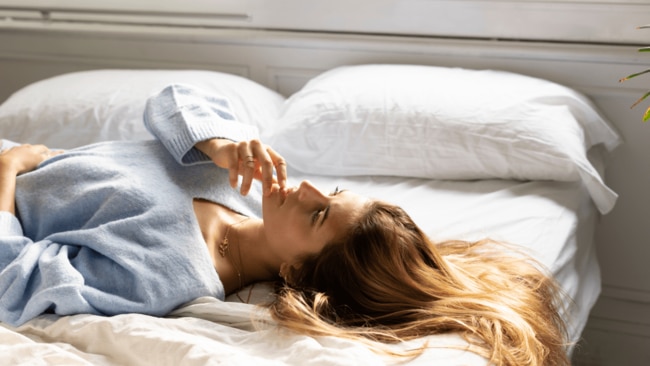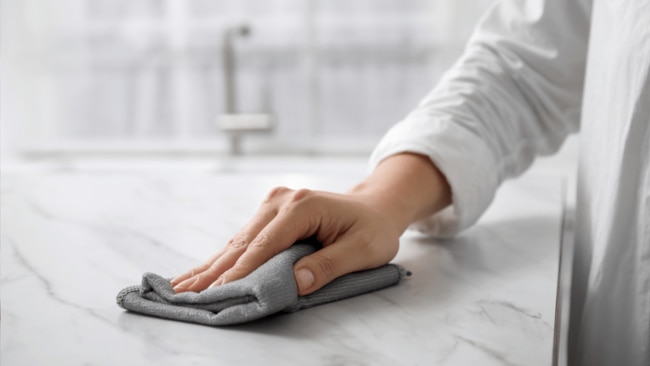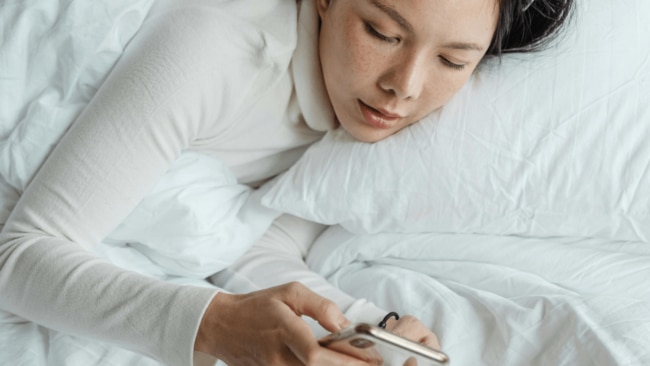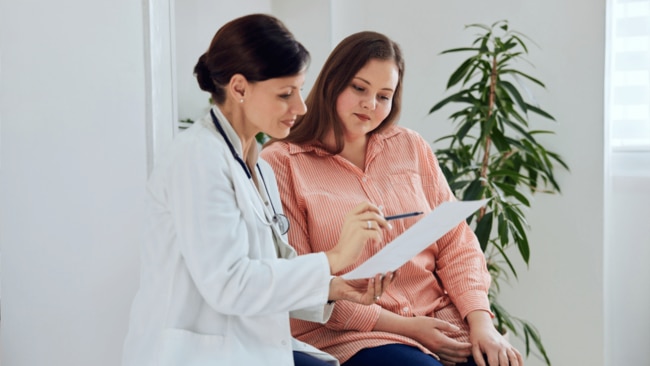Health anxiety: The silent illness gaining dangerous momentum
Let's chat about health anxiety

Lifestyle
Don't miss out on the headlines from Lifestyle. Followed categories will be added to My News.
Health anxiety can spiral into a whirlwind, making us worry about and dread often routine check-ups and normal bodily symptoms. But while seeking advice from your GP should be the first move, for some, However, for us to understand our health anxiety we need to know our bodies and our minds and learn to work with both.
Four years ago—during the first Covid lockdown and having just given birth to my first baby—my mum was diagnosed with Stage 3 incurable ovarian cancer. To say it took a huge toll on our family is an understatement, but beyond the initial shock of her diagnosis, what sparked in me was a level of health anxiety I’d never before experienced.
All of a sudden I began to think about my own health and wellbeing in a way that I’d never confronted before. Was this a condition I now had to watch out for? And what else might I be predisposed to?
What is health anxiety?
For most of us, maintaining our health and vitality is of the utmost importance. There’s nothing worse than being struck down by an illness and feeling anxious about our wellbeing – but this level of worry, for the most part, is considered normal.
“Anxiety about one’s health is something that most people will experience from time to time – like if we’re waiting for a blood test result or skin cancer check,” explains Courtney Lowther, Clinical Psychologist from Inner Melbourne Clinical Psychology. “But it’s important to note that health anxiety is on a spectrum, from not being present at all right through to being more significant, or even debilitating.”
It can also reveal itself in a number of different ways depending on our individual experience. “When someone experiences significant health anxiety, this will typically manifest as an all-consuming worry or preoccupation about having a serious medical condition,” explains Lowther.
“The individual may become fused with unhelpful beliefs about their health, request frequent screening or checks for signs or symptoms of ill health, seek reassurance from others including medical doctors—but often still feel unconvinced by this. Anxiety can then impact their quality of life and capacity to do things that matter to them, or feel important to them.”

Why has there been a surge of health anxiety?
Not surprisingly, since the Covid pandemic left us all holed up at home in fear, sanitising every surface we came into contact with, there has also been a significant increase in health anxiety, with research illustrating how young people are among the most affected. But it’s also important for us to consider how social media can be a dangerous tool for the spread of health misinformation.
During Covid, this misinformation wildfire became incredibly apparent as conflicting news and health advice were thrown about like confetti – leaving us each to draw our own conclusions. But more broadly, our constant access to and interaction with social media allows us to be influenced by self-proclaimed ‘experts’ sharing their health stories, unqualified diagnoses, and health hacks online.
But social media is just one possible trigger for health anxiety. And as Lowther explains, there’s no single cause. “Sometimes it develops over the course of your life,” she says. “But some factors that may lead to health anxiety may include:
- Witnessing someone you love/were close to or look up to experience health issues
- Experiencing a serious medical issue yourself or the possibility of a serious illness, even if it turned out not to be
- Having someone close to you who is also worried excessively about their health
- Generalised anxiety about a range of other issues
- Being more somatically aware. That is, some people are just more aware of their internal system and body and as a result, they may also notice more niggles, aches, pains, pings, and pangs in the body which may then trigger more anxiety.”

What to do if you have health anxiety
If you’re questioning whether you might have health anxiety, Lowther says that it’s important to return to thinking about your experience on a spectrum.
“You may experience minor anxiety from time to time but feel equipped to manage it on your own, whereas health anxiety that becomes all-consuming, debilitating or you have difficulty managing on your own requires further support.”
As always, the first step is to chat with your GP. “You need to rule out, as best you can, something medical going on,” says Lowther. “But once you’ve identified your experience as anxiety, one option is to seek therapy – which may or may not be with a psychologist. My recommendation is to search around for a therapist who best suits your needs.
Some things to consider:
- Would you prefer to see someone in person? Do they work nearby? Or would you prefer to speak to someone via Telehealth?
- Who would you feel most comfortable speaking with? Are they male or female? From a similar background to you or perhaps with an expertise in anxiety?
- What types of therapy do they practice? Do you feel drawn to a particular modality or way of working?
Start with a Google or social media search, ask friends and family for recommendations, and speak to your GP about possible Medicare referrals and rebates for psychologists," she advises.

Trusting your instincts is important as there is no one ‘best’ form of therapy for health anxiety.
“There is evidence that supports the use of Cognitive Behavioural Therapy as well as Acceptance and Commitment Therapy – but don’t discount other approaches," says Lowther.
"Typically a therapist will start to explore your anxieties and underlying traumas or factors that may have contributed – subsequently identifying unhelpful thoughts or beliefs you may hold regarding your health, as well as the behaviours you employ to reduce your anxieties. Then, they will start to address these by examining the underlying traumas and developing healthy coping skills.”
Taking a holistic approach can also be helpful. “Try to reduce any ‘checking’ behaviours and remember, Dr Google is not your friend,” reminds Lowther. “When your worries feel more intense you can try to distract yourself with something else, explore activities like mindfulness, or postpone your health worries by noting them down in a diary and setting a short time frame each day where you allow yourself the permission to think about them.
"During the day when they pop up, you can simply thank your mind for reminding you and then say 'I will think about this tonight between 7—7:15 pm'.”
The key, however, is to be kind to yourself. “Whether your health anxiety can be managed and ultimately overcome is going to depend on your individual experience – but you can certainly reduce your anxiety in order to live a more rich and meaningful life,” says Lowther. And at the end of the day, that’s all we can really ask for.
You can sign up for Ashley Lowe's newsletter, In the Thick of It, here.
More Coverage
Originally published as Health anxiety: The silent illness gaining dangerous momentum




